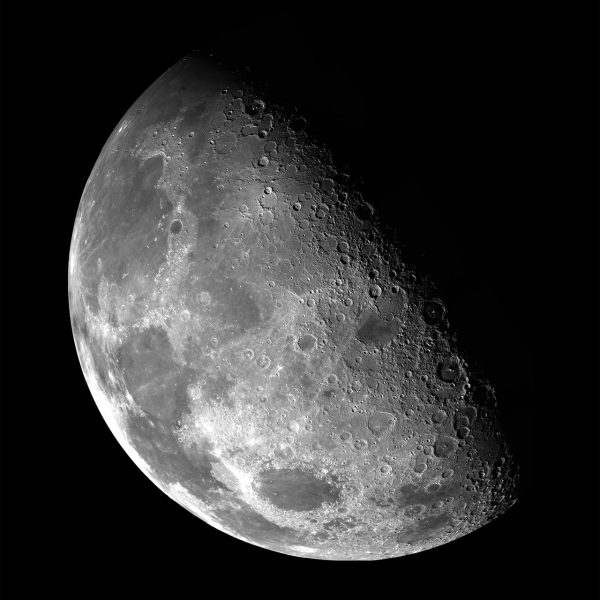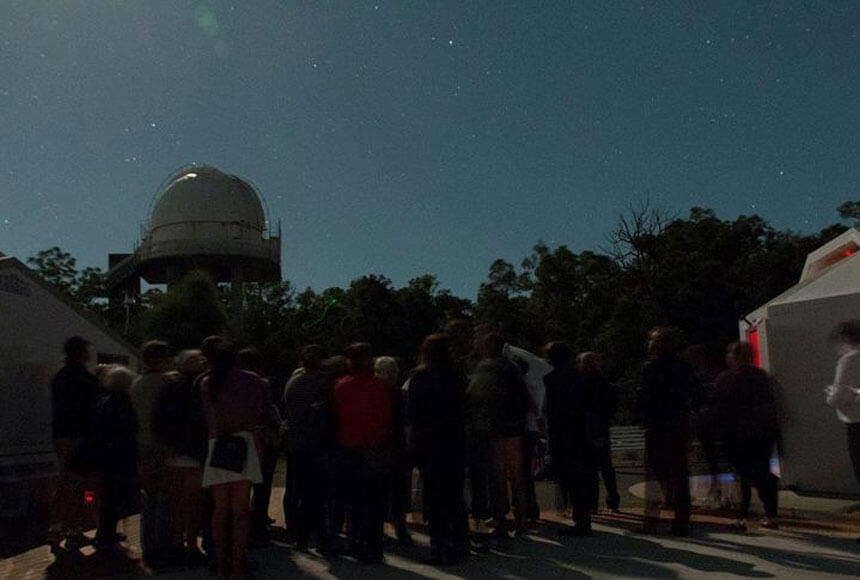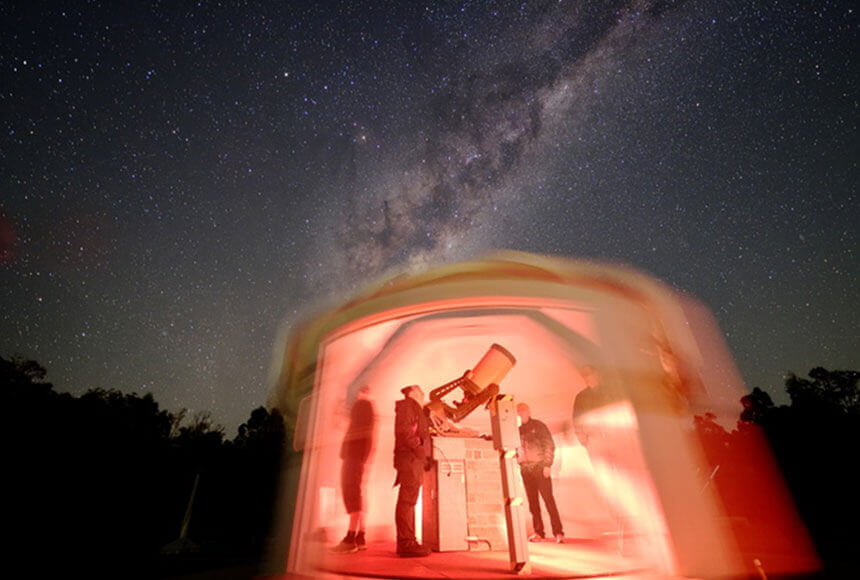
Like every other area of knowledge, astronomy has its own collection of specialised words. We use many of these words knowing what they represent, but often without knowing where they came from (i.e. their etymology).
The English language as we mostly speak today is a mix of older languages spoken by the various groups that settled in England after the Romans left in 410AD: Angles (hence Angle-land), Saxons and Vikings merged together to make Old English, before the Normans overlaid it with their older French language when they invaded in 1066 AD. At the same time, the Roman Church brought in Latin and Greek when Augustine arrived in 596 AD. Also, at the height of the Muslim conquests and scientific endeavour, many Arabic terms came via Muslim Spain. As the Church was heavily involved in scholarship, scholars naturally had to learn both Greek and Latin and wrote many of their works in Latin (e.g. Newton’s Principia). The use of these languages in scholarship meant many scientific terms were derived from these languages.
Latin and Greek are highly inflected languages; that is, the endings of nouns, verbs, adjectives etc. change to reflect person, tense, subject, direct/indirect object, ownership and so on. This gives rise to the suffixes we often see in these words. Let’s have a look at some common astronomical terms and see how their names came about:
Asteroid
A relatively small and rocky body orbiting the Sun. The first part of this word comes from aster, the Ancient Greek word for star. The -oid suffix comes from the Ancient Greek eidos, which means form, likeness or essence. Many words we use have this -oid suffix to indicate a likeness e.g. humanoid, planetoid, spheroid. Hence, we get the English version of “star-like”

Astronomy
The science that studies celestial objects and phenomena.
Again we start with aster, which is then combined with the word nomos, meaning “law”, to make astronomia, or “law of the stars”. aster becomes astron to indicate ownership (the equivalent of ‘s or s’ in English).
Azimuth
The angle between the north and the perpendicular projection of the star down onto the horizon.
This came via Muslim Spain from the Arabic al-sumūt, meaning “the directions”.
Comet
A celestial body moving about the sun, usually in a highly eccentric orbit, consisting of a central mass surrounded by an envelope of dust and gas that may form a tail that streams away from the sun. The base of this word comes from the Ancient Greek kome, which means “long or uncut hair”. When used to describe a comet’s appearance, it becomes part of the expression aster kometes, or long-haired star.

Crater
A Bowl-shaped depression is produced by the impact of a meteorite, volcanic activity, or an explosion. This comes from the Ancient Greek word krater, which was a large vase that was used to mix wine and water in Ancient Greece.
Galaxy
A gravitationally bound system of stars, stellar remnants, interstellar gas, dust and dark matter. Part of this word comes from the Ancient Greek gala, which means milk. To describe the band of light across the sky (formed by stars that the naked eye can’t resolve), it becomes part of the expression galaxias kyklos, or “milky circle”.
Gibbous
Having the illuminated part greater than a semicircle and less than a circle. This comes from the Latin gibba, meaning “a hump”. Turning it into an adjective gives us gibbōsus meaning “humped”.

Planet
An astronomical object orbiting a star or stellar remnant that is massive enough to be rounded by its own gravity, but is not massive enough to cause thermonuclear fusion.
The Ancient Greeks noticed that some stars appeared to move their position in the sky from year to year (for example, as of June 2018, Jupiter is in the constellation Libra, but at the same time next year it will be in Scorpio). That is, they appeared to “wander” about the sky.
The Ancient Greek for the wanderer is planitis, which is then used to describe the planets as planētes asteres, “wandering stars”.
Waxing
The increasing of the illuminated portion of the moon before the full moon. This comes from the Old English word weaxan – grow, increase. In fact, in modern German the verb wachsen means to grow.
Zodiac
The area of the sky that surrounds the ecliptic, the apparent path of the Sun across the celestial sphere over the course of the year.
The term has its origin in the constellations that lie along the ecliptic. It comes from the Ancient Greek zōion, which means an animal (whence we also get “zoo”). The Greeks changed the ending to a diminutive which conveys small size or endearment, giving zōidion, or “little animal”. So, to describe the constellations that the sun passes through, the Ancient Greeks used the term zōidiakòs kýklos, which means “circle of little animals”.





